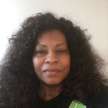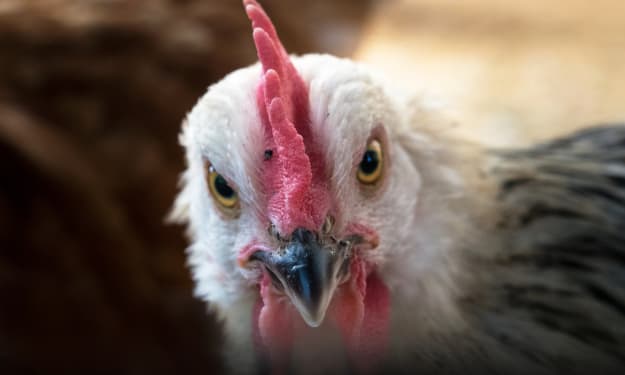Call Me By My Name
What should White people call non-White people? BIPOC?

“It is not our differences that divide us. It is our inability to recognize, accept, and celebrate those differences.” – Audre Lorde
Over the last week, I had several inquiries from my close White friends about the term BIPOC.
This is the same questioning I experienced with the term’s Black vs. African American. POC is People of Color. BIPOC is Black and Indigenous People of Color. Last year the YWCA replaced all its POC wording with BIPOC wording. Per the YWCA website, “BIPOC stands for Black, Indigenous, and people of color. Pronounced “bye-pock,” this is a term specific to the United States, intended to center the experiences of Black and Indigenous groups and demonstrate solidarity between communities of color.”
Of course, you googled it and know what it means but are hesitant to use these new initials. For those who thought BIPOC meant Bisexual People of Color, no. No, that is wrong. Don’t do that.
“If the intention was to help spell it out, some aren’t getting the message. On social media, many assumed the term stood for “bisexual people of color.” Others read it as “biopic,” the shorthand for a biographical movie. The term has caused confusion, and there isn’t universal agreement about what it means or whom it actually includes, but to most, people of color includes Latinos and Asians.”_-N.Y. Times, What is BIPOC
Don’t Call Me Black
But it is not that simple. Let me tell you four stories of brown-skinned people in my family. My grandmother never liked the terms African American or Black. Her skin was so dark she looked blue. The word she called herself was colored. All the Black people of her generation were colored. God help anyone foolish enough to call her anything but colored after she told you what she was. I asked her, “Why?” Grandma told me they fought like hell to make the White people stop calling them niggers. She was very proud of the change her generation had fought for and was not changing just because the rest of us wanted to be called something else.
I’m Black and Proud
Now, let’s talk about me. I’m a red-brown colored woman. I prefer to be called Black, not African American. Why? Because when I was growing up, “black” was an insult. Black was Little Black Sambo, or horrific evil or the representation of everything terrible. In my young adult experience, we turned Black into something good. It became “Say it Loud, I’m Black, and I’m Proud,” a song released in 1968 by James Brown or “To Be Young Gifted and Black” by Nina Simone or “I Don't Want Nobody to Give Me Nothing,” again James Brown released in 1970.
My mantra was, “I don’t want nobody to give me nothing, open up the door, I’ll get it myself, a line from the “Don’t Give Me Nothing” song. So, yea. I’m still Black.
African American Me
My husband is light, bright, and damn near White. He could pass for White. Kids teased him because he did not look like the typical Black person. Children are cruel; they used the word Black like a bludgeon on him most of his life. They were chasing him home and shouting how he was not a Black person. He prefers to be called African American. None of the three of us would like to be called BIPOC. My husband was being dropped off at college by his parents. He had to fill out a form in the residence hall lobby before he could get his dorm room key. His father was at his elbow as he filled out the form. When the paperwork asked for his race, he checked “Black.” His father made him cross out “Black” and insisted he check “Colored” instead. My husband’s father was in my grandmother’s generation.
BIPOC, Of Course

In her mid-twenties, my niece is strongly identifying with, you guessed it: BIPOC. She sees the term as inclusive of all the different peoples of color and uses the term routinely. She is a strong supporter of the BIPOC project.
“We use the term BIPOC to highlight the unique relationship to whiteness that Indigenous and Black (African Americans) people have, which shapes the experiences of and relationship to white supremacy for all people of color within a U.S. context. We unapologetically focus on and center relationships among BIPOC folks” -- https://www.thebipocproject.org/
Trying To Figure It Out
Conversations about race occur in my family as we have several young Black professionals trying to navigate life and work in America. In my family, even among us, we don’t paint everyone with a broad brush. Homo sapiens is the only human species that is alive today. In the past, there were others, but now we are the only ones left. Homo Sapiens is the only broad brush that works for everyone.
Each of us has individually decided how we want to be known as is our right. Everyone respects what that person believes; they are what they say they are: Colored, Black, African American, POC, or BIPOC, it is their choice. There is no consensus among people of color what we want to be called. All of us are individuals with our own backgrounds and baggage.
“It is lazy to lump us all together as if we all face the same problems,” said Sylvia Obell, a host of the Netflix podcast “Okay, Now Listen.” “When you blend us all together like this, it’s erasure. It allows people to get away with not knowing people of color and our separate set of issues that we all face. It allows people to play it safe and not leave anyone out, and it also allows you not to have to do the work.”
My Answer
My answer to when to use BIPOC instead of POC or Black or African American is Never. My strong advice to my White friends was to call me by my name. Don’t even try to describe me by my race. If forced to, for some unknown reason, you know I prefer Black. It’s a bear trap to describe an unknown person of color by race in public without talking to them. Don’t put your foot in the trap. Instead, leave race out of introduction altogether, as we should always have done. You won’t go wrong in your business or personal life.
Orginally published on Medium.com in No Air: https://medium.com/no-air/call-me-by-my-name-f20953c1dc49
About the Creator
Toni Crowe
Scarcastic executive. Passionate writer. Very opinionated. Dislikes unfairness. Writing whatever I want about whatever I want.






Comments
There are no comments for this story
Be the first to respond and start the conversation.